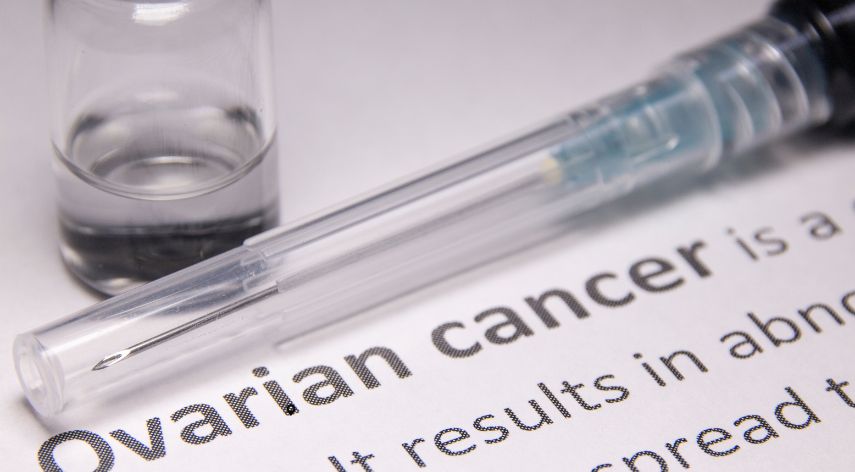Early Warning Signs of Ovarian Cancer Women Must Recognise

Ovarian cancer is often called the “silent killer” because its symptoms can be subtle and easily mistaken for less serious conditions. In the UK, it’s estimated that over 7,500 women are diagnosed with ovarian cancer each year, making it one of the most common gynaecological cancers. Yet, despite its prevalence, many women remain unaware of its early warning signs. Early detection is crucial—it significantly improves treatment outcomes and survival rates. This article aims to empower women in London and across the UK by shedding light on the early symptoms of ovarian cancer, risk factors, diagnostic methods, and prevention strategies. By recognising these signs and taking proactive steps, you can take charge of your health and potentially save your life.
What is Ovarian Cancer?
Ovarian cancer occurs when abnormal cells in the ovaries grow uncontrollably, forming tumours. The ovaries, which are part of the female reproductive system, produce eggs and hormones like oestrogen and progesterone. There are three main types of ovarian cancer: epithelial (the most common, accounting for about 90% of cases), germ cell, and stromal tumours.
In the UK, ovarian cancer affects approximately 1 in 78 women during their lifetime. While the overall survival rate has improved, late diagnosis remains a significant challenge. For instance, if caught at Stage 1, the five-year survival rate is over 90%, but this drops dramatically to just 20% when diagnosed at Stage 4. Understanding what ovarian cancer is—and why early detection matters—is the first step toward protecting yourself.
Why Early Detection Matters
Detecting ovarian cancer early is like catching a train before it leaves the station: it gives you more options and better chances of success. Early-stage ovarian cancer is often treatable with surgery or chemotherapy, offering a much higher chance of remission. However, the disease is notoriously difficult to diagnose early because its symptoms mimic those of other common conditions, such as irritable bowel syndrome (IBS) or urinary tract infections (UTIs).
Regular check-ups and being aware of potential symptoms play a vital role in early detection. Many women only discover they have ovarian cancer after the disease has spread beyond the ovaries, which complicates treatment. By staying vigilant and seeking medical advice when something feels off, you can improve your chances of catching it early.
Early Warning Signs of Ovarian Cancer
While ovarian cancer symptoms can be vague, there are specific patterns that should raise red flags. Here’s what to look out for:
Persistent Abdominal Bloating or Swelling
Feeling bloated occasionally is normal, especially after a big meal. But if you’re experiencing persistent bloating that doesn’t go away, it could signal something more serious. One woman in London shared her story: she thought her bloating was due to stress until tests revealed ovarian cancer.
Feeling Full Quickly or Loss of Appetite
Do you find yourself pushing your plate away halfway through dinner? If this happens frequently without explanation, it’s worth investigating further.
Pelvic or Abdominal Pain
Chronic pain in the pelvic area isn’t something to ignore. Whether it’s dull or sharp, ongoing discomfort could indicate an underlying issue.
Changes in Bathroom Habits
Urinary urgency, frequent urination, or constipation that persists despite dietary changes might point to ovarian cancer. These symptoms can also overlap with UTIs, so don’t hesitate to get checked.
Unexplained Fatigue
Fatigue that lingers even after restful nights could be a sign of various health issues, including ovarian cancer. It’s not just “feeling tired”—it’s a deep exhaustion that impacts daily life.
Unusual Menstrual Changes or Postmenopausal Bleeding
Irregular periods or unexpected bleeding after menopause should always prompt a visit to the GP. While it may not be cancer, ruling it out is essential.
Unexplained Weight Changes
Sudden weight gain or loss without changes in diet or exercise habits can sometimes indicate a deeper problem.
If you notice any of these symptoms persistently for more than a few weeks, it’s time to see a doctor. Keep track of your symptoms and bring notes to your appointment to help your GP understand your concerns better.
Risk Factors for Ovarian Cancer
Certain factors increase your likelihood of developing ovarian cancer. Age is a significant factor—most cases occur in women over 50—but younger women aren’t immune. Genetic predisposition, particularly BRCA gene mutations, plays a role too. If you have a family history of ovarian or breast cancer, consider discussing genetic testing with your GP.
Lifestyle factors also matter. Obesity, poor diet, and smoking can elevate your risk. Reproductive history, such as never having children or starting menstruation early, may also contribute. Hormonal factors, including hormone replacement therapy (HRT) and infertility treatments, have been linked to increased risk in some studies.
Understanding your personal risk profile can help you make informed decisions about prevention and screening.
Screening and Diagnosis in the UK
Currently, there’s no national screening programme for ovarian cancer in the UK, unlike breast or cervical cancer. However, the NHS provides guidelines for assessing symptoms and conducting tests. Your GP might recommend a pelvic exam, ultrasound, or CA-125 blood test if they suspect ovarian cancer.
It’s important to note that these tests aren’t foolproof. For example, elevated CA-125 levels can occur in non-cancerous conditions like endometriosis. Similarly, ultrasounds can miss small tumours. Despite these limitations, these tools remain valuable for guiding diagnosis.
Prevention and Early Detection Strategies
While you can’t eliminate all risks, adopting healthy habits can reduce your chances of developing ovarian cancer. Maintaining a balanced diet, staying physically active, and avoiding smoking are great places to start. For high-risk individuals, genetic testing and prophylactic surgeries (like removing the ovaries) may be considered.
Regular GP check-ups are another key strategy. Tracking your menstrual cycle, noting unusual symptoms, and attending screenings as recommended can catch problems early. Charities like Target Ovarian Cancer offer excellent resources and campaigns to raise awareness.
When to See a Doctor
If you experience persistent symptoms or feel something isn’t right, trust your instincts and book an appointment. Prepare for your GP visit by jotting down your symptoms, how long they’ve lasted, and any questions you have. During the consultation, your GP will likely ask about your medical history and perform a physical examination. Depending on their findings, they may refer you for further tests.
Remember, it’s okay to advocate for yourself. If you feel dismissed or uncertain about the diagnosis, seek a second opinion.
Conclusion
Recognising the early warning signs of ovarian cancer is critical for improving outcomes. From persistent bloating to unexplained fatigue, these symptoms warrant attention—even if they seem minor. By understanding your risk factors, staying proactive about your health, and seeking timely medical advice, you can take control of your wellbeing.
Let’s break the silence around ovarian cancer. Share this knowledge with friends and family, and encourage them to prioritise their health too. Together, we can create a future where every woman has the tools and information she needs to thrive.
FAQs
Can ovarian cancer be detected early?
Yes, but it’s challenging due to vague symptoms. Awareness and regular check-ups are key.
What age group is most at risk?
Most cases occur in women over 50, but younger women can develop it too.
How accurate are ovarian cancer tests?
Tests like CA-125 and ultrasounds provide useful insights but aren’t definitive on their own.
Can lifestyle changes reduce the risk of ovarian cancer?
Absolutely! A healthy lifestyle lowers risk, along with managing hormonal and genetic factors.
Stay informed, stay vigilant, and remember—you know your body best.
Lareal Young is a legal professional committed to making the law more accessible to the public. With deep knowledge of legislation and legal systems, she provides clear, insightful commentary on legal developments and public rights, helping individuals understand and navigate the complexities of everyday legal matters.
Recommended For You
Heart disease remains one of the leading causes of illness and death in the UK, but early detection can make
In the UK, we are fortunate to have one of the most robust sexual health frameworks in the world. Whether
Few experiences are as disruptive as a persistent, throbbing toothache. It’s the kind of pain that doesn’t just stay in
Browse by Category
- Travel
- Technology & Gadgets
- Sports & Games
- Software
- Shopping
- Reviews
- Real Estate
- Numerology
- News
- Make Money
- Lifestyle
- Law
- Home Improvement
- Health
- Gardening
- Games
- Finance
- Entertainment
- Education
- Digital Marketing
- Diet and Fitness
- Dating
- Construction
- Celebrity
- Career and Jobs
- Business
- blog
- Angel Number




